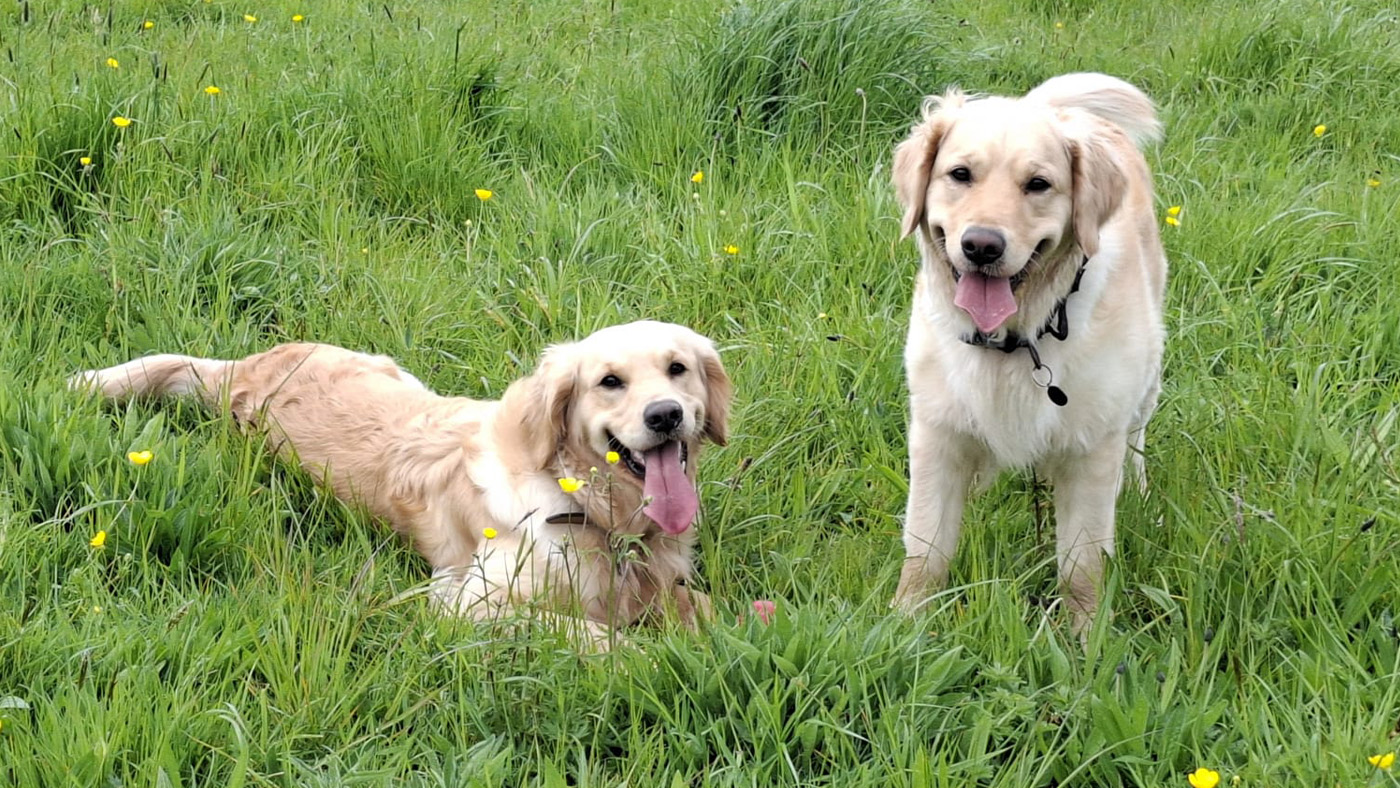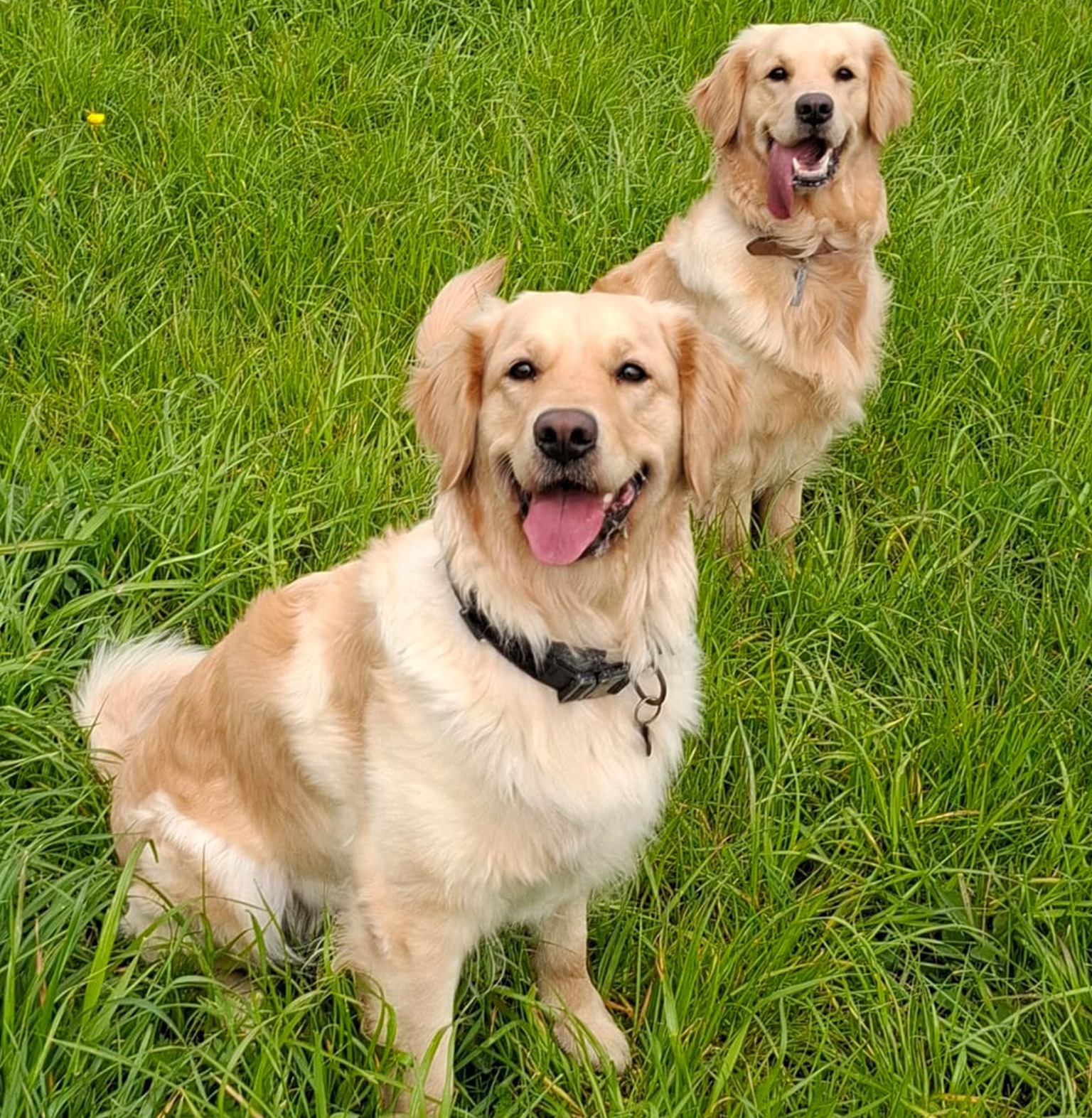5 things I wish I knew before getting a second dog
It’s a position many dog owners find themselves in

Get the best advice, tips and top tech for your beloved Pets
You are now subscribed
Your newsletter sign-up was successful
If you’ve already got one dog, what's one more? But hold up! It turns out there’s quite a bit to think through before you bring home a playmate for your dog.
I’ve got two golden retrievers, and here are five things I wish someone had told me about before making the jump from one to two...
1. They both need one-on-one time
It’s an easy trap to fall into. You think to yourself, well, I already have one dog, what difference does another really make? But you still need to factor in time to give both dogs separate attention.
If you’re considering bringing home a second dog, you may find your first dog may need some extra love and reassurance over the adjustment period. Or you might find that the energy levels of your dogs differ such that you need to take them out on separate walks. You will also need to train them both separately, as well as take them to appointments – from vet check-ups to obedience training – separately.
My parents already had an older Border Terrier when they brought home a puppy golden retriever, and it quickly became apparent that each dog required their own one-on-one time.
The puppy, like all puppies, needed a lot of dedicated one-on-one puppy training. The older boy needed some extra quality time with his humans, away from the frenetic energy of a puppy. This worked well for my parents as one of them works from home and the other part-time, but if you’re time poor it could be very difficult to manage.

2. Going away is more difficult
If you’re regularly planning to leave your pets while you go away on holiday, visiting family and friends or on work trips, you might want to rethink a second dog. While many vacation rentals and hotels are dog friendly these days, many exercise a one dog limit.
Get the best advice, tips and top tech for your beloved Pets
I go away with my family fairly regularly and at one point we had four dogs between us. Getting a holiday let that agrees to that many is unlikely, to put it mildly! So like us, you might find having more dogs seriously limits your holiday options.
But what about if you leave your dog behind? Even then, you might run into some issues when doubling your pack. If you currently rely on friends or family to look after your dog, you might find them less than willing when you ask them to look after two. And if you pay for boarding, you will have to budget for double the costs.
While going away, or arranging care, for two dogs is doable, it is more work, requires more logistics and can be more expensive.
3. Training is even more important
Training your dog is always important, but when you introduce another dog to the mix it becomes even more crucial. If your current dog has any behavioural problems, they could easily pass these on to the new dog, especially if they’re a puppy, who will be learning how to act in their new environment.
You may also find that bringing home a second dog either creates, or emphasizes, issues with your current dog. For example, a common issue is an increase in resource guarding, which while a normal behaviour can cause problems. Resource guarding is particularly likely over high-value treats such as bones, toys and even preferred people.
If your second dog is a puppy, as you likely know, they require a lot of training anyway. So you will need to commit to training both dogs, together and apart.

4. They may not be best friends immediately
Wanting a second dog often comes from either your own adoration of dogs, or the desire for a doggy BFF for your first dog. However it’s important to spend some time thinking about how two dogs will impact your current dynamic.
Before bringing home a second dog, think about your first dog's personality and needs. Paying attention to how he or she interacts with other dogs can be a useful indicator of how they’d react to a second dog. For example, if they are excessively anxious or territorial, you may find the process is challenging.
Ultimately though, there is simply no way to predict how two dogs will get on. While you can stack the odds in your favour by ensuring that both dogs are compatible breeds and personalities, you cannot guarantee that they will become soul mates, or even friends.
Friendship is unlikely to happen quickly, so it’s important to give both dogs and yourselves a reasonable period of time to adjust to the change to dynamics and to forge new relationships.
You can help encourage them to get along by allowing them to get to know one another at their own pace and rewarding good behaviour. My parents gave their first dog regular breaks from the puppy and ensured that when she was around, she wasn’t constantly pestering him (as can be the inclination of curious puppies).

5. It’s double the work, but more than double the joy
If adding a second dog to your life sounds like more work, it is. It involves separate training and possibly walks, an increase in insurance costs, vet bills and pet food, not to mention a hike in the price of going on holiday. So why do it? Well, it might be double the work but it can be more than double the joy.
If you’re already a dog person, what’s better than more dogs? Plus, if it all goes well, you’ll get to watch a whole new bond develop between both of your dogs. If they’re inclined, they’ll each have a playmate to have fun with on walks and a companion for when you have to leave the house. Case in point: my parents' older dog has since passed away, and they regularly talk about getting a second dog.
But while watching your two dogs develop a relationship can fill your home with joy and laughter, it's important to note that this comes at the price of responsibility. Deciding to get a second dog is a big deal. It will unbalance the status quo in your house and you can expect a period of adjustment while you and both the dogs settle into new rhythms and relationship dynamics.
You can make the journey smoother by selecting complimentary dogs and having a decent understanding of canine behavior and training requirements. You’ll need patience and persistence, but the rewards of having two happy dogs can make the process worth it.
Read next: 6 things I wish people would consider first before choosing a dog breed and 20 things to consider before getting a second pet.

Abby is a freelance writer and dog owner. She currently has two golden retrievers, Lowen and and Indy, but has previously had many other pets, including rabbits.
Abby has written for Metro, House Beautiful, Fit+Well, and more. Alongside this, Abby also volunteers at a local dog rescue centre, helping out with daily activities, such as walking, feeding and grooming.
